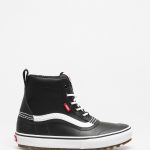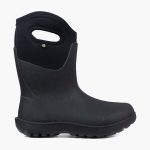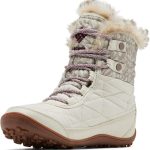Unleash Your Style: Can You Wear Rain Boots In The Snow? Discover The Perfect Winter Footwear Now!
Can You Wear Rain Boots in the Snow?
Introduction
Hello, Boots Enthusiast! Today we are here to discuss a common question that arises during the winter season – can you wear rain boots in the snow? As we all know, snow and rain can be quite different in terms of their intensity and characteristics. In this article, we will dive into the details of whether rain boots are suitable for snowy conditions, the advantages and disadvantages of wearing them, and answer some frequently asked questions. So, let’s explore this topic further and find out if rain boots are a practical choice for snowy days!
3 Picture Gallery: Unleash Your Style: Can You Wear Rain Boots In The Snow? Discover The Perfect Winter Footwear Now!
The Basics: What, Who, When, Where, Why, and How
What are Rain Boots?
Rain boots, also known as Wellington boots or rubber boots, are a type of footwear designed to keep your feet dry and protected in wet conditions. They are typically made of waterproof materials such as rubber and come in various heights, colors, and patterns.
Who Can Wear Rain Boots in the Snow?

Image Source: busbeestyle.com
Anyone can wear rain boots in the snow, as they offer protection against moisture and cold temperatures. From children to adults, rain boots are suitable for all age groups. However, it is important to consider the specific needs and preferences of individuals before making a decision.
When Can You Wear Rain Boots in the Snow?
Rain boots can be worn in the snow when the conditions are not too extreme. They are perfect for slushy or wet snow, as they prevent your feet from getting wet and keep them warm. However, if the snow is deep or icy, it is advisable to opt for more appropriate footwear such as snow boots.
Where Can You Wear Rain Boots in the Snow?
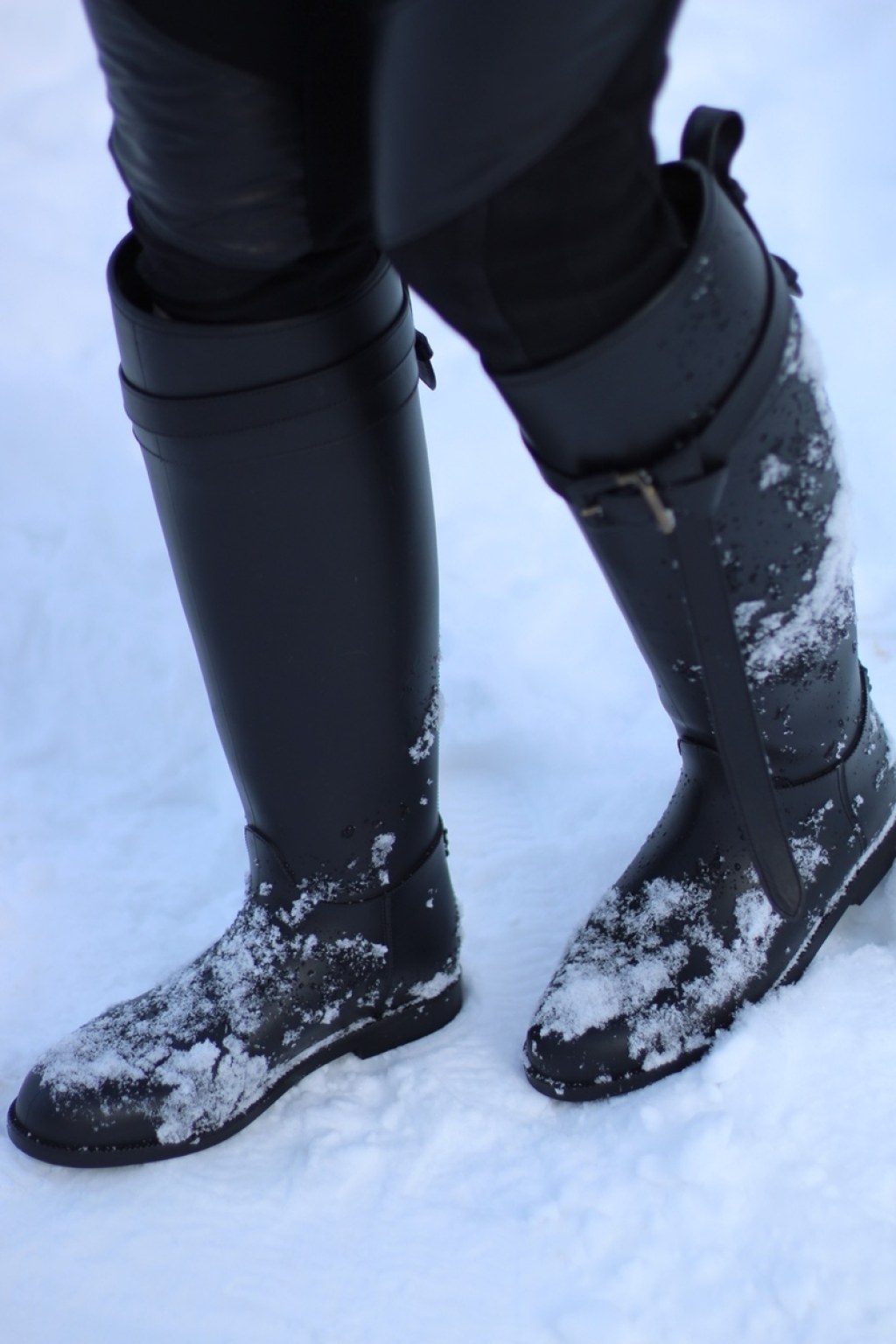
Image Source: busbeestyle.com
Rain boots can be worn in various snowy environments, such as urban areas, parks, and even for outdoor activities like hiking or snowshoeing. They provide excellent traction, keeping you stable on slippery surfaces and ensuring a comfortable walking experience.
Why Consider Wearing Rain Boots in the Snow?
There are a few reasons why you might consider wearing rain boots in snowy conditions. Firstly, they are waterproof, which means your feet will stay dry even in slushy or wet snow. Secondly, rain boots are often more affordable compared to specialized snow boots, making them a practical choice. Lastly, rain boots offer versatility, as they can be worn in both rainy and snowy weather.
How to Wear Rain Boots in the Snow?
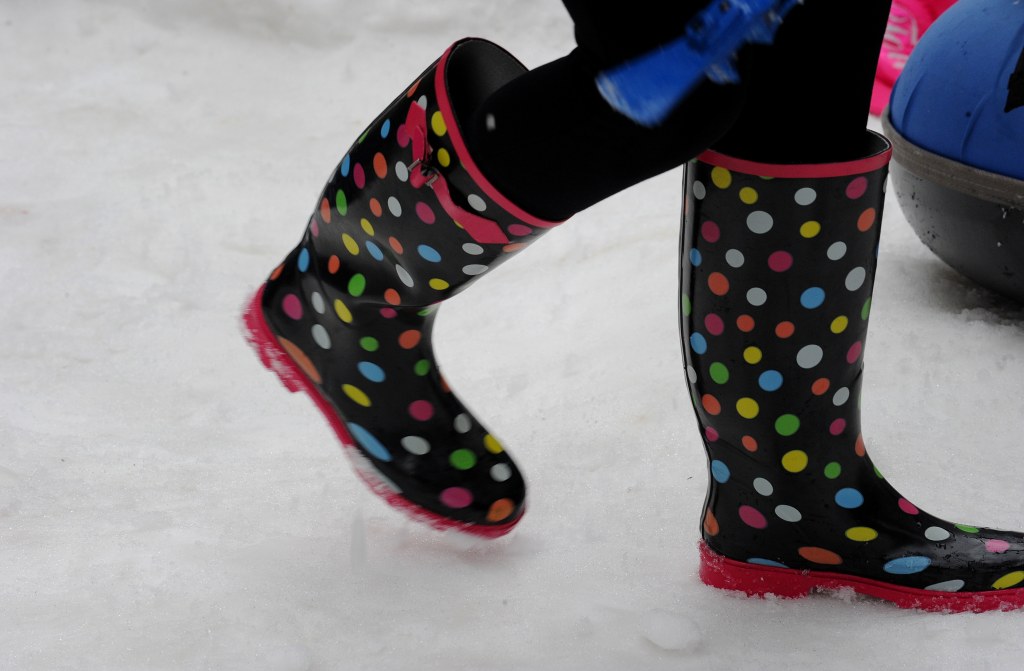
Image Source: imgix.net
When wearing rain boots in the snow, it is essential to layer your socks for added warmth and insulation. Additionally, you can consider using insoles or thermal liners to enhance the heat retention of your boots. It is also recommended to choose rain boots with thicker soles for better traction and to prevent heat loss from the bottom of your feet.
Advantages and Disadvantages of Wearing Rain Boots in the Snow
Advantages of Wearing Rain Boots in the Snow
1. Waterproof Protection: Rain boots keep your feet dry in slushy and wet snow, preventing discomfort and potential health issues like frostbite.
2. Versatility: Rain boots can be used in both rainy and snowy conditions, making them a versatile choice for different weather situations.
3. Cost-Effective: Rain boots are often more affordable compared to specialized snow boots, providing a cost-effective footwear option.
4. Traction: Rain boots offer good traction, reducing the risk of slips and falls on slippery surfaces.
5. Easy to Clean: Rain boots are easy to clean and maintain, as they can be wiped or washed off after use.
Disadvantages of Wearing Rain Boots in the Snow
1. Limited Insulation: Rain boots may not provide as much insulation as dedicated snow boots, resulting in less warmth in extremely cold temperatures.
2. Less Breathability: Rain boots can be less breathable compared to other types of winter footwear, potentially causing sweaty or uncomfortable feet.
3. Limited Ankle Support: Some rain boots have a looser fit around the ankle, which may reduce ankle support and stability, especially on uneven terrain.
4. Not Suitable for Deep Snow or Ice: Rain boots are not designed for walking in deep snow or on icy surfaces, as they lack the necessary features for such conditions.
5. Style Limitations: Rain boots may not offer as many style options as other types of winter footwear, which can be a factor to consider for some individuals.
Frequently Asked Questions (FAQs)
1. Can rain boots be worn in heavy snow?
No, rain boots are not suitable for heavy snow as they lack the necessary insulation and features to keep your feet warm and protected in extreme winter conditions.
2. Are rain boots slippery on ice?
Yes, rain boots can be slippery on ice. They are not designed for walking on icy surfaces, so it is advisable to use appropriate footwear with better traction in such conditions.
3. Can rain boots handle deep snow?
Rain boots are not designed for walking in deep snow. The shorter height and lack of insulation may result in discomfort and inadequate protection from the cold.
4. Are rain boots warmer than regular boots in the snow?
Regular winter boots, specifically designed for snow, often offer better insulation and warmth compared to rain boots. If you are looking for maximum warmth, it is recommended to invest in snow boots.
5. Can rain boots be worn in all types of snow?
Rain boots are suitable for wet or slushy snow, but they may not perform well in deep or icy snow. It is important to consider the specific snow conditions before deciding on your footwear.
Conclusion
In conclusion, while rain boots can provide some level of protection and comfort in snowy conditions, they are not the most ideal choice for heavy snow or icy surfaces. They offer waterproof functionality and versatility, making them suitable for wet or slushy snow. However, their limitations in terms of insulation, traction, and ankle support should be taken into consideration. Ultimately, the decision to wear rain boots in the snow depends on the specific weather conditions and personal preferences. Stay warm and safe this winter!
Final Remarks
It is important to note that the information provided in this article is for general guidance purposes only. Individual experiences and preferences may vary, and it is always recommended to assess the specific conditions and requirements before making a decision. Stay informed, stay safe, and enjoy your winter adventures!
This post topic: Boots

